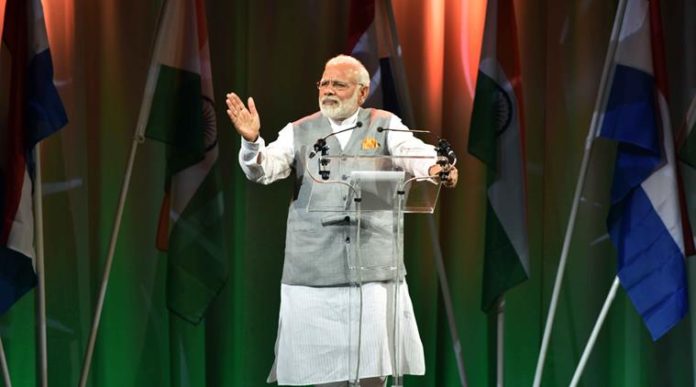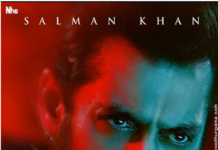Team Commonwealth
 India and the UK are increasingly aligned on the Commonwealth’s potential to provide an impetus to trade and investment, writes India Inc. Founder & CEO Manoj Ladwa.
India and the UK are increasingly aligned on the Commonwealth’s potential to provide an impetus to trade and investment, writes India Inc. Founder & CEO Manoj Ladwa.
Tennis legend Billie Jean King famously said: “Create your legacy, then pass on the baton”. As the 25th Commonwealth Heads of Government Meeting (CHOGM) draws closer, there is anticipation that an initiative taken to bring trade and investment to the forefront of the grouping’s concerns may, in the years to come, see the emergence of the nearly century-old multilateral organisation as a major global trading bloc.
At the April summit in London, Indian Prime Minister Narendra Modi will become the first Indian head of government to attend a CHOGM after a gap of many years. This is in keeping with his commitment to step up India’s engagement with the rest of the world by building on existing ties.
The timing is perfect. US President Donald Trump has just launched the first salvo in what could unfold into a full-fledged global trade war. Across the world, China, Trump’s intended target, is considering where and when it wants to retaliate. And in between, sober nations and analysts are blinking in disbelief as economic logic takes a back seat and an international tariff war threatens to hit the prosperity of every country in the world.
In one of 2017 editions of ‘India Global Business’, we carried a cover package titled Reimagining the Commonwealth where we had tried to visualise this organisation, which had, till very recently, been reduced to a nostalgic club of ex-colonies of the British Empire, as a modern trade-focused group relevant to the needs of its members in the 21st century. The tremendous response to that issue, especially from top decision-makers and policy framers in the UK, India and elsewhere convinced me that this was the way for the Commonwealth to go.
The imperative has become much more urgent now. And as the long-serving Head of the Commonwealth, Queen Elizabeth II, prepares to hand over the leadership baton of her symbolic yet influential position to a successor – most probably Prince Charles, though this is by no means certain – all eyes will be fixed on how Modi and a few other influential countries react.
If the Prince of Wales can transition with a clear articulation of the future (and I have no doubt that he can), it will go a long way in answering the critics. Alongside, another passing of the baton, from an old order wedded to the old Commonwealth to a new leadership championing the transition, could also be unfolding.
As the second-largest and fastest growing economy within the Commonwealth, India’s influence and prestige has soared over the last few years and many smaller nations are expected to take their cue from New Delhi.
Fortunately, India and the UK are increasingly aligned on the future of the Commonwealth. Post-Brexit UK and fast globalising India both realise the dangers posed to the world by the short-sighted opposition to freer trade – the secret sauce that gave the Western world its greatest period of prosperity after the Second World War.
The UK and Indian governments have to act in concert to avert this, but it is imperative that they engage and align with other members of the Commonwealth, most notably Australia, New Zealand, Canada, Singapore, Malaysia, South Africa, and Nigeria who are all significant economies.
In this context, I am pleased that India has mooted the idea of a Commonwealth Trade & Investment Centre to be located in India – to drive a new agenda for freer and fairer trade globally.
To succeed, this centre must be given adequate funds and other resources, including access to the very best talent from across the Commonwealth, and ensure that its birth is not bogged down in stuffy bureaucratic processes, which have regrettably come to typify some of the approaches and institutions of the organisation. Its business and their networks must be given leading roles.
But most importantly, the Commonwealth must be able to set for itself a forward-looking agenda that every member state feels is relevant to its own needs and that serves to enhance the collective prosperity and influence of the group. With Prince Charles representing continuity, cohesion, and stability, and Modi vision and aspiration, we could have the makings of a new Team Commonwealth.
Manoj Ladwa is the founder of India Inc. and chief executive of MLS Chase Group @manojladwa

Readers like you, make ESHADOOT work possible. We need your support to deliver quality and positive news about India and Indian diaspora - and to keep it open for everyone. Your support is essential to continue our efforts. Every contribution, however big or small, is so valuable for our future.












Manoj has presented the case for re-kindling the trade between the natural allies that India and UK are in the midst of the re-moaners painting a doom and gloom picture. There are lots of synergies the two countries can initiate and achieve and Modiji is once again championing the cause for India at the Commonwealth summit. India has the greatest advantage of being the true inheritors of the British ways, and that’s not just English. In the light of the Chinese retaliation for US goods I am sure the world powers will be looking to India as a favourable friendly country to do business with.